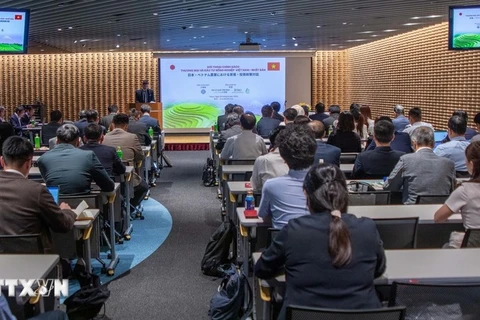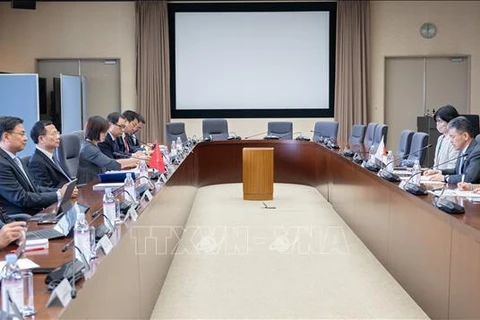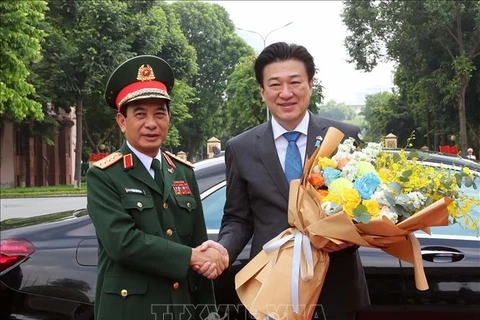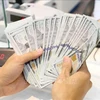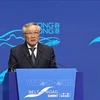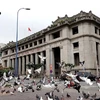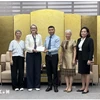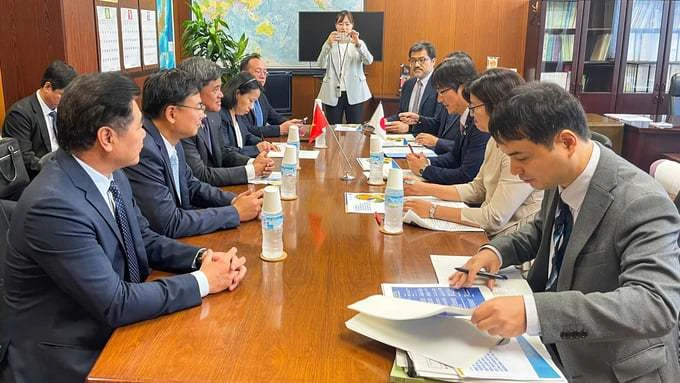
Tokyo (VNA) - Deputy Minister of Agrculture and Rural Development Tran Thanh Nam has called for coordination from Japan to implement capacity-building programmes for cooperatives joining Vietnam's project on developing 1 million hectares of high-quality, low-emission rice linked with green growth in the Mekong Delta region by 2030, with focus on building a digitalisation system for chain management and establishing a system for monitoring and evaluating emission reductions.
During his meeting with Senator Maitachi Shoji, Vice Minister of Agriculture, Forestry and Fisheries of Japan, in Tokyo on August 20, Nam underlined the need to mobilise resources to support capacity building for cooperatives and farming households to effectively implement the project.
The two sides discussed issues related to strengthening cooperation in agricultural projects, training, experience exchange, and market access.
Maitachi applauded Vietnam's initiative for sustainable transformation of the rice industry, adding that Japan's electronic agricultural extension system facilitates the fastest and most efficient exchange of information between agricultural extension agencies, extension officials, and farmers.
He showed his interest in supporting Vietnam in improving and upgrading its training programmes on agriculture towards a multifunctional approach. He took note the proposal to support Vietnam to improve its capacity in the agricultural extension work, firstly to implement the project and then in the standard raw material areas that the Ministry of Agriculture and Rural Development (MARD) is directing.
The Vietnamese official said he hopes that the Japanese Ministry of Agriculture, Forestry, and Fisheries will support and facilitate the involvement of relevant agencies such as the Japanese Embassy in Vietnam, the Japan International Cooperation Agency (JICA), and Japanese non-governmental organisations in supporting the MARD's training institutions.
The two sides also discussed promoting and creating favourable conditions for joint venture and investment collaboration between Japanese and Vietnamese businesses in the fields of organic agriculture, digital technology in agriculture development, logistics, and agro-forestry-aquaculture trade.
Meanwhile, the Japanese official proposed strengthening high-quality agricultural cooperation through attracting investment, technology, and knowledge transfer based on agreements between the two sides.
Nam requested the Japanese side to expedite the completion of procedures for Vietnamese pomelo to be exported to the Japanese market and to continue assessing the risks and pests associated with passion fruit and butter from cow's milk. They said that MARD has also instructed its relevant units to complete procedures for Japanese grapes to be exported to Vietnam and to continue evaluating the export needs for Japanese peaches and puffer fish.
The technical agencies of the two ministries are reviewing relevant documents and expect that the “Medium- to Long-Term Vision for Japan-Vietnam Agricultural Cooperation in 2025 - 2029 will be signed between the two sides in the first quarter of 2025.
Japan is currently one of the important markets for Vietnam's agro-forestry-aquatic exports, accounting for about 7.5% of the total annual export turnover of these items. The average export growth over the past 10 years has expanded 6.35% per year./.
